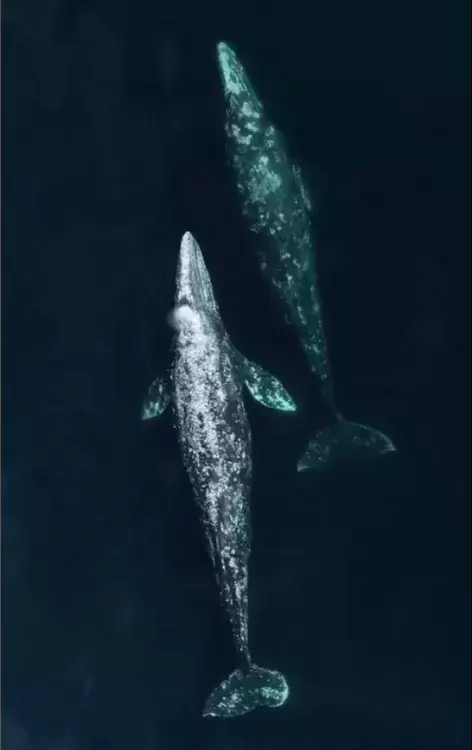A tradition that’s been happening for more than 30 years is returning to the Ucluelet-Tofino area in March.
The 35th Pacific Rim Whale Festival will be running during spring break, following limited festivities over the past few years due to the COVID-19 pandemic.
Started by whale watcher Brian Congdon in the 1980s, he realized that the industry every year was waiting for the return of grey whales to the area, and proposed a festival to celebrate this.
“The festival aims to like, inspire, entertain, and educate for our local community as well as visitors to the coast,” explained festival coordinator Sarah Watt. “The main thing with the festival every year is celebrating nature and the return of grey whales.”
Education is a large goal for the festival, especially for kids and families looking for something to do over the school break.
“We've also got children's Maritime Kids days, which are happening in Tofino and Ucluelet on separate days,” said Watt. “That's just a whole day filled with educators and entertainers, some from the local area and we've also got some coming from Vancouver Island and the Lower Mainland. The Strawberry Isle Marine Research Society will have their build a whale, where children can put together a skeleton of an offshore orca that was washed ashore here years ago.”
Other events for the kids include science experiments with Glenn Kachmar, which will relate to whale adaptations, and the Raincoast Education Society teaching about plankton. The Marine Mammal Rescue Unit from the Vancouver Aquarium will also be there so kids can learn what goes into rescuing stranded mammals.
In past years the festival has had partnerships with the local First Nations, including weaving workshops and storytelling from renowned artist Roy Henry Vickers. While there is nothing on the schedule with the nations yet, there have been events proposed and announcements about them should be coming in the lead up to the festival.
“We absolutely want to bring that back,” says Watt. “There was a little hesitation over COVID, which is understandable. This is really our first year where we're putting the festival back.”
The Tla-o-qui-aht First Nations will be running their own event, called naaʔuu, on various evenings throughout March as well in collaboration with the Pacific Rim Whale Festival. The three-hour event will be held at the Best Western Plus Tin Wis Resort in Tofino, and contain “cultural presentations depicting the Nation’s history through song, dance, and traditional carvings coming to life over a delicious dinner” according to the event page.
In their announcement, naaʔuu Co-Producer Hjalmer Wenstob says, “we have been reserved to share any of our culture publicly for fear of it being taken away.”
They describe the event as a way to “to decolonize and reassert our ways in our communities and the [homeland],” and say that now is time to share their wisdom, traditions, and teachings with the rest of the world. All proceeds from the feast will be supporting the Tla-o-qui-aht Tribal Parks Guardians and regional services.
The Tla-o-qui-aht, whose traditional territory includes both Tofino and Ucluelet, were a whale hunting community prior to settlers coming over from Europe. Watt says they hope to have Indigenous speakers join their West Coast Whales forum.
“We get together researchers to talk about the latest research and conservation in the area,” she said. “So I would really like to get an Indigenous perspective on that, on their relationship historically the stewardship now, which we can learn from them.”
Speakers for the forum have not yet been announced.
Whale hunting was a central part of Tla-o-qui-aht culture, as Tsimka Martin explains in a blog post written for the T’ashii Paddle School. The ritual of preparation is described as being lengthy, often taking months or even years for a first-time whale hunter to be ready, and would include everything from cold water bathing and physical fitness routines to spiritual and mental preparation.
While the role of whale hunter traditionally belonged to the men, the women also performed rituals around whale hunting, involving prayer and meditation to communicate the whale’s spirit, according to Martin.
A typical hunt consisted of a team of thee canoes, two for hunting and one for communication. Each would be approximately 35 feet long and carry eight hunters. The canoes would also carry around 40 fathoms of cedar rope and seal skin floats, as well as a lance, bone spike, and harpoon.
Upon completion of a successful hunt, the people of the village would gather on the beach to sing songs and honour the life of the whale as it was brought in. The body would then be carved, making sure no part of it would go to waste.
The Pacific Rim Whale Festival will start with their “Parade of Whales and Wonder” on March 17 and run through the March 25. A full list of events can be found at their website.

